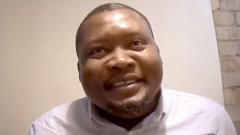Exploring the Complex and Controversial Trade of Human Body Parts in the US
The trade in human body parts in the United States remains a legally gray area, with the potential for exploitation and unethical practices rife within the industry. Personal narratives, like that of Harold Dillard, a Texan who donated his body after suffering from cancer, expose the darker side of a system that often operates without stringent oversight.
In his final days, Dillard agreed to donate his body for medical research, believing it would serve a noble purpose. However, after his death, his family discovered that his remains had been mismanaged, leading to distress and a sense of betrayal. This incident falls under a troubling trend where body brokers acquire corpses for profit, dissecting and reselling body parts while exploiting grieving families.
While many individuals experience altruism in donating their bodies to science, motivations can also be linked to financial pressures, given the high costs of funerals. As such, the article highlights a dual narrative: the altruistic intent to aid medical research versus the commercial exploitation of human remains.
Regulatory gaps in the US allow body trading firms to operate profitably, contrasting sharply with the prohibitions seen in the UK and Europe. Critics liken these practices to grave robbing, while advocates emphasize the essential role of body donation in advancing medical education and healthcare practices.
With the increasing public discourse on the ethics of body donation, suggestions to reform the industry focus on creating stricter regulations akin to those governing organ donation. Without improved oversight and the coercive potential of desperate financial conditions, the body broker model risks continued exploitation.
As advancements in technology, such as virtual reality, suggest potential alternatives to cadaver use, the dynamics of body donation in the future remain uncertain. In a society where bodies are increasingly commodified, a broader public conversation on the dignity of the deceased is essential to guide future practices in the industry.





















